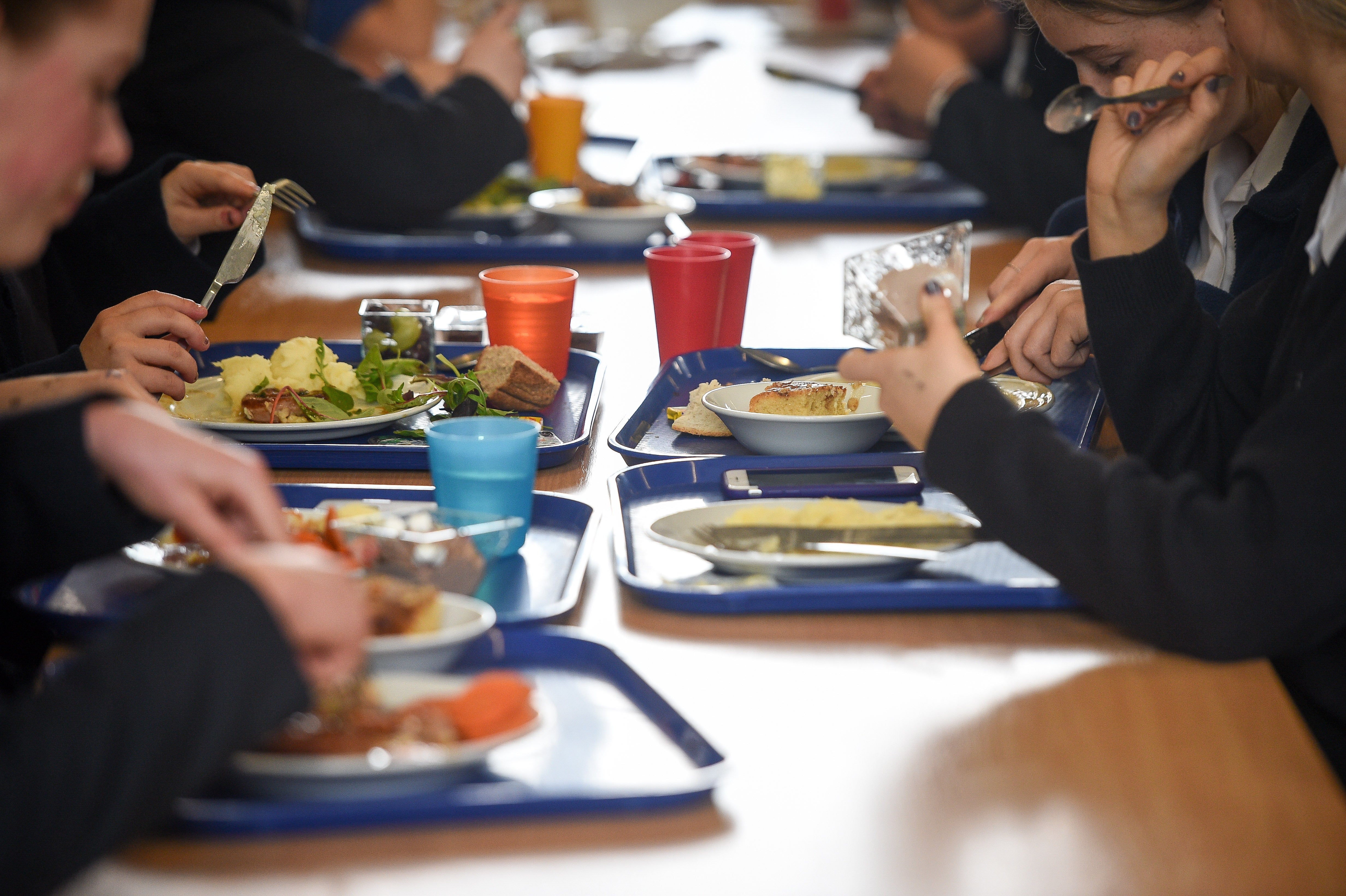Facial recognition cameras installed in UK school canteens
Software trialled in Scottish schools to speed up lunchtime transactions.

Your support helps us to tell the story
From reproductive rights to climate change to Big Tech, The Independent is on the ground when the story is developing. Whether it's investigating the financials of Elon Musk's pro-Trump PAC or producing our latest documentary, 'The A Word', which shines a light on the American women fighting for reproductive rights, we know how important it is to parse out the facts from the messaging.
At such a critical moment in US history, we need reporters on the ground. Your donation allows us to keep sending journalists to speak to both sides of the story.
The Independent is trusted by Americans across the entire political spectrum. And unlike many other quality news outlets, we choose not to lock Americans out of our reporting and analysis with paywalls. We believe quality journalism should be available to everyone, paid for by those who can afford it.
Your support makes all the difference.Schools in Scotland are trialling facial recognition to allow pupils to pay for their lunches from Monday.
The software is to be trialled across nine schools in North Ayrhsire, and hopes to speed up lunchtime sales by scanning the faces of pupils when at tills.
Many schools already use biometric software, such as fingerprint recognition, to take payments but facial recognition is billed as being quicker and more Covid-secure.
David Swanston, the manging director of CBR Cunninghams, who installed the software, said it was “the fastest way of recognising someone at the till.”
“In a secondary school you have around about a 25-minute period to serve potentially 1,000 pupils. So we need fast throughput at the point of sale, he told the Financial Times.
Mr Swanston said the software cut the average transaction time five seconds per pupil.
But the new system has been criticised by privacy campaigners who say it normalises facial recognition software where there is little need for and was often operated without clear consent from the user.
Silkie Carlo, of the civil liberties campaign group Big Brother Watch, said: “It’s normalising biometric identity checks for something that is mundane. You don’t need to resort to airport style [technology] for children getting their lunch.”
North Ayrshire Council said 97 per cent of children or their parents had consented to the new system, but some parentswere unsure whether children were given enough information to make their decision.
Facial recognition has previously been used by schools to monitor attendance and security. But Fraser Sampson, the Biometrics Commissioner for England and Wales, said schools should be use “a less intrusive way” if possible.
Biometric identifying technology has has caused an outcry elsewhere in the world after being introduced in schools. Authorities in New York state banned facial recognition software in schools pending an assessment of privacy inplications, while one municipality in Sweden has been fined for trialling such a scheme.
Join our commenting forum
Join thought-provoking conversations, follow other Independent readers and see their replies
Comments